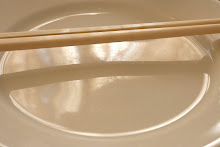Michael and I recently returned from a trip to Europe. In Paris we spent each entire day walking around the city from morning until sunset, taking in everything we could, enjoying the Parisian environment and its unique qualities.

During the recharge period since we have returned home, we have been talking about our experience and today we really had a good review of our images. We realized that besides the specific re-occurring details of Parisian style, such as everyone wearing black, black sidewalks, lots of lovely architectural decorative sculpture to name a few, our images could have been taken anywhere. We were just doing what we always do, looking and seeing—color, texture, light, line, moments of tender heart, just as we have on the Boulder or Denver pedestrian malls, on the Halifax waterfront, walking around the block, in our back yard. You don’t have to have an exotic location to have stunningly vivid perceptions. As Michael always says in classes quoting Dr. Buckaroo Banzai – “No matter where you go – there you are!”.
Secondly, we appreciated how important the editing process is while on a trip somewhere you have never been and may never return to. After all the trips we have taken, I know that the last thing I want to be faced with upon returning home are mountains of images that I don’t care about and never should have taken in the first place. When you are someplace you consider really cool, (Paris, for example) it’s easy to get excited and lose the orientation to shoot flashes of perception. We speed up while trying to take it all in, and we shoot anything new and possibly culturally interesting or entertaining (e.g. ‘cute alert’). Our discernment process goes out the door. We want to take it all with us when we go home, every moment, every scene. Without some opportunity to review what we are shooting, a course correction is very difficult. A lot of energy can be wasted shooting images that we will just end up deleting. What’s the point?
To fully experience each day in a fresh way, I think it’s necessary at the end of it, no matter how exhausted we may feel (why do we have to push so hard each day - isn’t it a vacation, I ask myself?) to review and edit the images taken that day. This way we can realize any traps we may have fallen into, such as - we are not really having flashes, only ideas of somebody else’s concepts about what to shoot, the classic shot of this and that, what will make our friends and family envious of our trip, and so on. Then we can take corrective action. We can slow down and when we are stopped by a perception, we can fully stop and understand what stopped us, stay still in the moment, appreciate it, and then possibly or not, decide to commit to making an image of it. This process is the basis for the enjoyment of the experience itself. It keeps us fully grounded in the present moment, which is the only moment that exists. By shooting without discrimination we are trading the joy of direct experience in the here and now for the later process of reviewing our images at the end of our trip. It’s like running through a field of flowers and plucking them and placing them in a bag to enjoy later. Then when we arrive home the flowers are a pale expression of their original vitality. Because we didn’t enjoy the perceptions as we were having them and we didn’t take the time to translate our experience precisely into our image, the vividness and freshness is lost. Like dried flowers, they are only hollow representations of our memory. And that is sad.
This backlog of unedited images can leave us feeling burdened and fatigued. Because we have not taken the time to process our experience by viewing our images along the way, we can become constipated, both physically and mentally. Without exercising our ability to discriminate the nature of our perceptions (in the sense of visual discernment) and what we want to keep and what we want to let go of, we risk digestive overload. This makes it very difficult to relax and enjoy ourselves. Our experience can become a blur, lacking clarity.
Text and Photos © Julie DuBose 2009



